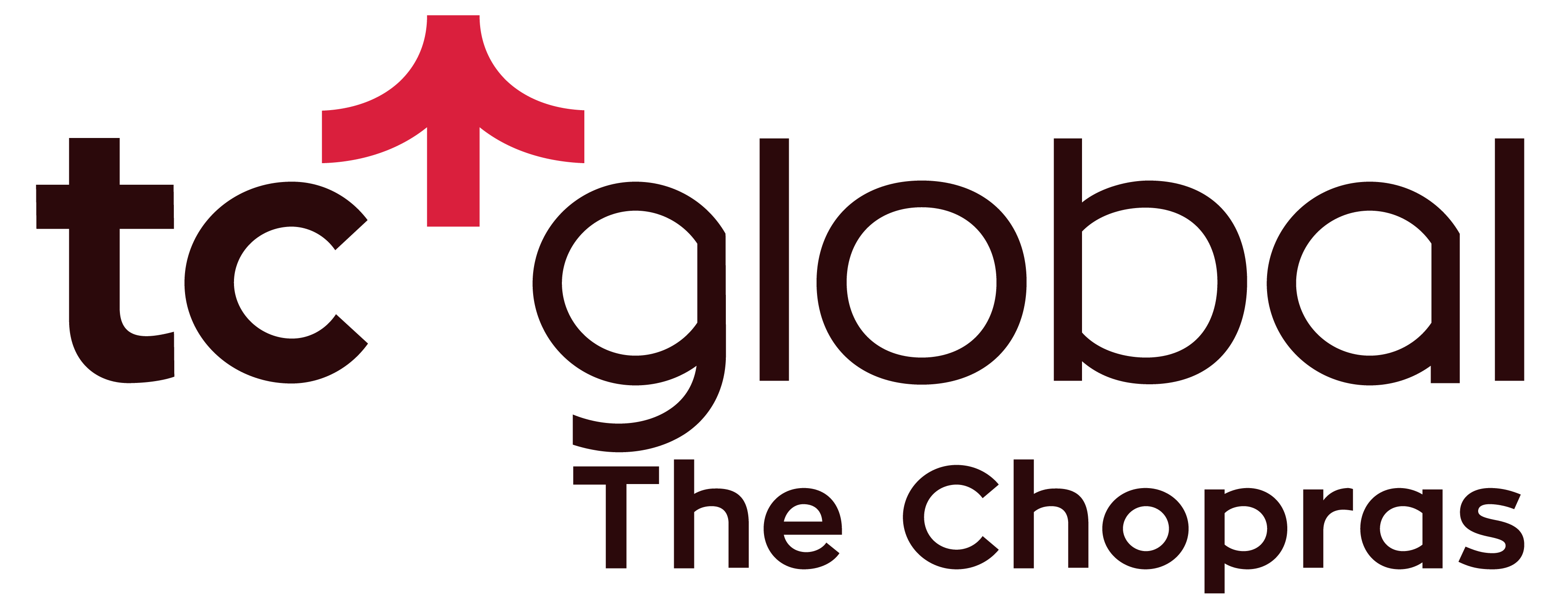If you are considering a great university on the east coast of the US, then a look at NYU vs Boston University would be very helpful. Two of the top-notch schools located on the eastern coast of the United States, BU and NYU offer immense opportunities to their students, be it in academics, research, or extracurricular activities.
New York University (NYU, nicknamed the Violets) is a private research university located in NYC. Founded in 1832, NYU ranks 35th in the country and 43rd in the world. With an open campus that is woven into the streets of urban New York, NYU is a premier research institution, known for its programs in law, business, and performing arts among other disciplines. The university is also renowned for its pioneering faculty, a diverse student community and an immense alumni network spread all over the globe.
Established in 1839, Boston University (BU, nicknamed the Terriers) is a private research university with over 37,000 from the 50 states and over 140 countries. BU offers over 300 programs of study across disciplines and is highly renowned for its eminent faculty, research prowess and campus life. This article covers these two universities in depth, looking at their academics, campus life, student body, fees, financial aid and other factors.
NYU vs Boston University: A Quick Glance

Here is a quick look at some factors that can help you decide when it comes to Boston University vs New York University. The finer aspects of these differences are explored in detail in the following sections.
1. Ranking and Prestige:
NYU ranks higher than BU but both of them are considered at par with one another, in a tier just below the Ivies.
2. Ownership and Location:
NYU is located in Manhattan and Brooklyn boroughs of NYC, while BU is located in downtown Boston, Massachusetts. Both are privately owned, not-for-profit, research universities.
3. Campus Size and Vibe:
Both campuses are open, part of the cities, without an enclosed designated area. NYU’s campus is spread over a few blocks around Washington Square Park while BU is more centralised on Commonwealth Avenue. NYU’s campus vibe reflects that of the city, with an extremely diverse student population.
4. Acceptance Rate and Student Population:
NYU has a larger student body and a lower acceptance rate among the two universities. BU’s acceptance rate of around 14% makes it relatively less competitive than NYU. The following table gives you a clear look at the numbers to compare both universities.
5. Academics:
While many of NYU’s programs are ranked higher, BU has more options at the undergraduate and graduate levels. BU is also part of the Boston Consortium, allowing its students to take courses in other member universities.
BU vs NYU at a Glance
| NYU | BU | |
| Established in | 1831 | 1839 |
| Ownership | Private Research University | Private, Not-for-Profit |
| Mascot | Bobcat | Rhett, the Boston Terrier |
| School Colours | Purple and white | Red and White |
| Nicknames | Violets | Terriers |
| Academics | ||
| US News National Rank | 35 | 43 |
| Bachelor’s Degree Majors | 270+ | 70+ majors, 300+ programs of study |
| Number of Master’s Degrees Offered | 100+ | About 225 |
| Popular Areas of Study |
|
|
| Fees and Scholarships | ||
| Average Tuition Fee for BA/ BSc per year | $62,796 | Around $66,700 |
| Average Tuition Fee for MA/ MS per year | $40,000 – $114,000 | Around $67,000 |
| Average Financial Aid | $53,790 | $22,000 – $48,000 |
| Eligibility Criteria | ||
| Average High School GPA | 3.7 | 3.8 – 4.0 |
| Median SAT/ ACT Test Scores for admission | SAT: 1470 – 1570 ACT: 33 – 35 (Test Optional) |
SAT: 1370 – 1480 ACT: 34 |
| English Language Requirements | TOEFL iBT: – 100 IELTS: 6.5 – 7.0 |
TOEFL iBT: 90 – 100 IELTS: 7.5 |
| Acceptance Rate | 8 – 10% | ~ 14% |
| Student Population | ||
| No. of undergraduate students in 2023 | 29,760 | 17,744 |
| No. of graduate students in 2023 | 27,575 | 18,476 |
| Average Early Career Salary of Graduates | MBA – $170,000 Undergraduates – $71,128 |
$49,000 – $84,000 (depending on the area of study) |
| Student Faculty Ratio | 8:1 | 11:1 |
| Average Class Size | 58.4% of classes with fewer than 20 students | ~ 30 59.8% of classes with fewer than 20 students |
| Campus | ||
| Campus Location | Manhattan, Brooklyn | Boston |
| Campus Type | Urban, Open campus, part of NYC | Urban, Open campus, part of Downtown Boston |
NYU vs BU: Academics

One of the key aspects that can make a prospective student prefer NYU to Boston University is academics. The courses that they offer, their choices and flexibility, ranking, degrees and class sizes, academic calendars, research facilities and budgets can become important factors in deciding which college is best suited for you.
Overall and Subject Ranking
If you are looking at overall university ranks, then NYU clearly stands ahead of Boston University. The Violets rank 35th in the country according to metrics published by US News and World Report and 43rd in the world for the year 2025, according to QS World University Rankings. In contrast, Boston University ranks 43rd in the country and 108th in the world, respectively.
But, as an aspiring student, the focus should be more on subject rankings than the overall rank of the university. Where does your chosen university stand with respect to your chosen area of study/ department carries more value to you than a generalised ranking. For instance, NYU’s law school, Stern School of Business, or even the Tisch School of the Performing Arts are some of the top-ranked schools, considered even better than some of the Ivies, when it comes to their specialised fields.
Similarly, Boston University ranks 32nd in the world (QS Ranking) for Economics and Econometrics. BU is also top notch if you want to study Dentistry, Development Studies, Theology, and Psychology. Ultimately, both NYU and BU enable a competitive yet collaborative environment, designed to push students towards excellence. Here is a quick comparison of the university ranks for 2024
| New York University | Boston University |
| Overall National Rank US News: 35 | Overall National Rank US News: 43 |
| Times Higher Education WUR: 27 | Times Higher Education WUR: 78 |
| QS WUR 2025: 43 | QS WUR 2025: 108 |
| Subjects and Other Ranking (Source: QS and US News) | |
|
|
To sum up, both universities offer a wide range of top-notch programs and have a long-standing reputation for academic excellence. In terms of prestige, they are both in a tier right below the Ivy League Universities. That said, NYU is ranked higher and globally more popular than Boston University. However, as mentioned earlier, your decision ought to be based on the rankings and the profile of the department of your choosing, rather than the university as a whole.
Constituent Schools
The different courses at NYU are offered by the following schools and colleges.
- College of Arts & Science
- Graduate School of Arts & Science
- Liberal Studies
- College of Dentistry
- Courant Institute of Mathematical Sciences
- Gallatin School of Individualised Study
- Grossman School of Medicine
- Institute of Fine Arts
- Institute for the Study of the Ancient World
- Leonard N Stern School of Business
- Robert F. Wagner Graduate School of Public Service
- Rory Meyers College of Nursing
- School of Global Public Health
- School of Professional Studies
- School of Law
- Silver School of Social Work
- Steinhardt School of Culture, Education, and Human Development
- Tandon School of Engineering
- Tisch School of the Arts
The schools and colleges that constitute Boston University are
- Honors College
- School of Medicine
- College of Arts and Sciences
- College of Communication
- College of Engineering
- College of Fine Arts
- College of General Studies
- Faculty of Computing and Data Sciences
- School of Global Studies
- Graduate Medical Sciences
- Graduate School of Arts and Sciences
- School of Dental Medicine
- Questrom School of Business
- Metropolitan College & Extended Education
- Sargent College of Health and Rehabilitation Sciences
- School of Hospitality Administration
- School of Law
- School of Public Health
- School of Social Work
- School of Theology
- College of Education & Human Development
- Division of Military Education
Note: BU is also a member of the Boston Consortium that allows their students to register for one course per semester at other institutions including Northeastern, Brandeis University, Tufts, Boston College, Hebrew College and a few specialised courses at MIT.
Degrees and Class Sizes
Another important factor in choosing NYU or BU is the difference in size – be it in terms of student population, number of programs or class sizes.
| NYU | BU | |
| Undergraduate Population | 29,760 | 17,744 |
| Graduate Population | 27,575 | 18,476 |
| Number of Undergraduate Options | 270+ | 300+ |
| Number of Graduate Options | 100+ | 225 |
| Student – Teacher Ratio | 8:1 | 11:1 |
| Classes with fewer than 20 students | 58.4% | 59.8% |
Here is what we can glean from the table.
- NYU has a much larger student population, both at the undergraduate and the graduate level. This can be an advantage or a disadvantage, depending on your personal preferences.
- Some students thrive in a larger, competitive environment with more opportunities to socialise and build networks. While BU is not less competitive in any way, a relatively smaller student body can also mean more attention per student.
- BU has relatively more options when it comes to programs. This might not be a deciding factor if you have a specific field or major in mind, but if you are looking to explore options as an undergrad student, then this can become a deciding factor.
- NYU has a much lower student-to-faculty ratio than BU.
At the undergraduate level, most universities have a core curriculum that is mandatory for all students. This curriculum typically includes topics from the liberal arts and physical sciences, enabling the student to take on an interdisciplinary approach right from the beginning.
BU’s core curriculum is fairly standard. It consists of eight 4-credit foundational courses –– four Humanities courses, two Natural Sciences courses, and two Social Sciences courses. In contrast, NYU has a far more flexible core curriculum with fewer mandatory course requirements.
Key Dates for Application
In this section, we will be looking at the key dates for application and admission into undergraduate programs to get a sense of the timeline. It is also recommended that you verify with the specific department / school that you are applying to, just to ensure they do not follow a different cycle.
| Important Dates | NYU | BU |
| Early Decision (ED) Deadline | ED I – November 1 ED II – January 1 |
ED I – November 1 ED II – January 4 |
| Regular Application Deadline | January 5 | January 4 |
| ED admission decisions Posted in | ED I – December 15 ED II – February 15 |
ED I – Mid December ED II – Mid February |
| Regular Decision Posted in | April 1 | Late March |
| Deadline to accept offer of Regular admission | 4 weeks from the date of offer | May 1 |
| Average Acceptance Rate | 8% | ~ 14% |
Admission Options to be considered in the Boston University NYU debate
1. Both universities do not have Early Action, but have the Early Decision (ED) admission cycle.
2. ED in both universities is binding. It means students who are admitted through ED are contractually bound to enrol in the university and withdraw any other application.
3. The Common Application is required for both universities along with a supplemental essay.
4. Even though the regular application deadline is in January for Boston University, students who want to be considered for the merit scholarships must submit their completed applications by December 1.
Semester vs Quarter
Both NYU and BU follow a semester system, with the main academic calendar spreading through Fall (August/ September – December) and Spring (January – April/ May). Both universities also have a shorter summer term during which some academic activities take place.
What are the top three courses to study at NYU?
1. Business

Stern Business School at New York University provides a well-rounded business education at the bachelor’s, master’s and doctoral levels. Ranked 11th in the country by QS Rankings, NYU Stern offers some of the most competitive business programs on the eastern coast of the United States. It is one of the few top-rated business schools in the US that offer numerous STEM-certified undergraduate degrees in business, including a BS in Business, BS in Business and Political Economy, BS in Business, Technology and Entrepreneurship, and concurrent degrees in Business, Film and Television.
At the graduate level, besides MBA and its specializations, Stern offers degrees in Accounting, Data Analytics and Business Computing, Marketing and retail science, Organization Management and Strategy, Quantitative Economics, and Quantitative Finance. With stalwart faculty at the top of their fields and emphasis on social impact, NYU has some of the best business programs in the country.
2. Law

Ranked 6th in the world, having overtaken most of the Ivies, including Columbia, the London School of Economics and UCL, the NYU School of Law offers top-notch legal programs in the country. At the cutting edge of interdisciplinary research and teaching, NYU’s strengths lie in strengths in law and philosophy, economics, politics, history, and social theory. Their courses on international, comparative, and foreign law are renowned the world over. NYU Law also offers a number of dual degree programs, as well as other grad schools at the university. This unique opportunity enables students to complete a Juris Doctor degree and earn a Master’s degree in four years.
3. Visual and Performing Arts

Besides being located in the middle of New York’s vibrant arts scene, the Tisch School of Arts is one of the preeminent centres for the study of the performing, cinematic and emerging media arts. This school is the alma mater of some notable artists including Lady Gaga, Martin Scorcese, Chris Columnus, Adam Sandler, Alec Baldwin, Rainn Wilson, Alexis Bledel, Andy Samberg and M Night Shyamalan.
Tisch brings together artists and scholars from around the world to study acting, dance, cinema studies, collaborative arts, design for stage and film, dramatic writing, film and television, game design, interactive media arts, interactive telecommunications, moving image archiving and preservation, musical theatre writing, performance studies, photography, public policy, and recorded music.
What are the top three courses to study at Boston University?
1. Business and Management

According to the college rankings published by US News, BU’s Questrom School of Business is ranked 50th among 124 best business schools. With their highly flexible, award-winning curriculum, BU students can tailor-fit their degrees to meet their career goals. Seminars, lectures, group discussions and numerous projects are part of the teaching methodology so that students learn the practical applications of formulating and analysing a business plan from the undergraduate level.
Courses offered:
- BSBA (Bachelor of Science in Business Administration)
- MBA
Joint degrees include
- MBA+ MS in Digital Technology
- MBA+ MA in International Relations
- MBA+ MA in Economics
- MBA+ JD
- MBA+ JD (3-Year Accelerated)
- MBA+ MS in Product Design & Manufacture
- Health Sector MBA + MD
- Health Sector MBA + MPH
- Social Impact MBA + MS in Energy & Environment
2. Engineering

One of the top 50 schools of engineering in the country, BU’s engineering programs have a global reputation. Committed to a transformative approach and interdisciplinary thinking, the university’s department of engineering has created scholars and scientists who have become Fellows of AAA and Guggenheim.
Besides the numerous concentrations made available, undergraduate degrees in engineering are offered in
- Biomedical engineering
- Computer Engineering
- Electrical Engineering
- Mechanical Engineering
Graduate programs include:
- MEng/ MS in Biomedical Engineering
- MEng/ MS Material Science
- MEng Systems Engineering
- MS in Electrical and Computer Engineering
- MS in Mechanical Engineering
- MS in Robotics and Autonomous Systems
- MS/ MBA in Product Design and Manufacture
3. Psychology

Offering a combination of classroom learning and hands-on research, BU’s psychology major can open up careers in the fields of psychiatry, medicine, law, policy-making and other domains. The department’s research strength is tied with that of Cornell University. Undergraduate students are also given the choice to take up advanced coursework and participate in research conducted in the areas of Clinical Psychology, Child Development and Cognitive Neuroscience at BU.
Notable Faculty, Alumni and Research Facilities
Both NYU and BU have a long list of illustrious alumni that include Nobel laureates, McArthur fellows and numerous other distinguished scholars. Moreover, some of the biggest names in Hollywood have graduated from the Tisch School of Arts of NYU.
Nobel Laureates from NYU
- Clifford G. Shull (Nobel Prize in Physics)
- Frederick Reines (Nobel Prize in Physics)
- George Wald (Nobel Prize in Physiology/ Medicine)
- Julius Axelrod (Nobel Prize in Physiology/ Medicine)
- Eric R. Kandel (Nobel Prize in Physiology/ Medicine)
- Mohamed M. El-Baradei (Nobel Peace Prize)
Nobel Laureates from Boston University
- Osamu Shimomura (Nobel Prize in Chemistry)
- Daniel Tsui (Nobel Prize in Physics)
- Derek Walcott (Nobel Prize in Literature)
- Elie Wiesel (Nobel Peace Prize)
- Sheldon Glashow (Nobel Prize in Physics)
- Saul Bellow (Nobel Prize in Literature)
- Martin Luther King Jr (Nobel Peace Prize)
- Oscar Arias Sánchez (Nobel Peace Prize)
Both are R1 research universities that encourage every student’s desire to push the boundaries of their discipline. NYU allocates over $1 billion for research. BU supports over 130 centres and institutes dedicated to research and has published over 7,600 research papers in 2023. A sum of $645.6 million was given as research awards in the financial year 2023.
| Academics – Key Similarities and Differences |
| 1. Both are distinguished universities with a global presence. NYU is ranked higher than BU in many areas of study.
2. NYU’s law school, Stern School of Business and the Tisch School of Arts are world leaders in their respective fields. 3. BU has fewer students but more academic programs to choose from, when compared to NYU. BU is also a member of the Boston Consortium that allows its students to take up courses in other member colleges and universities. 4. Both universities follow an academic calendar that is divided into semesters. 5. While BU has a smaller student body, NYU has a lower student-to-faculty ratio. 6. Both schools offer numerous study abroad options that allow students to attend a semester or a year abroad. While BU typically ties up with partner universities and organisations, NYU has global academic centres located in 12 cities around the world, in addition to partner institutions. 7. BU has a fairly standard core curriculum while NYU’s is more flexible with fewer mandatory programs. |
NYU vs BU: Fees and Scholarship Opportunities

After academics, the next important distinction that will help you decide when it comes to New York University vs Boston University is the cost involved. The cost of attendance (tuition), additional expenses such as books, student fees, insurance and housing must be taken into account before making a choice.
Since both are privately owned, they do not offer subsidised tuition rates for in-state students like the other American public universities. Here is a table that will help you compare these two top universities in matters of fees and scholarships.
| Annual Rates | NYU | BU |
| Tuition (Bachelor’s) | $62,796 | About $66,700 |
| Average Tuition (Master’s) | $40,860 – $96,705 | Around $63,798 |
| MBA Tuition | $86,092 – $113,365 | $66,670 |
| Housing | $10,240 – $26,720 | Around $19,000 |
| Types of Financial Aid | 1. Scholarships and Grants 2. Federal Loans 3. Work Study Grants 4. External Scholarships |
1. Scholarships and Grants 2. Federal aid 3. Work Study Grants 4. External Scholarships |
| International student scholarships |
|
|
| Average financial aid for first year students | $59,000+ | $57,882 |
| Admission Decisions | Need aware for international students | Need blind (No need-based aid for international students) |
| Demonstrated Need Cover | 100% (Families with income less than $100,000 will not have to pay tuition) | 100% of demonstrated financial need for all admitted, first-year students who are US citizens or permanent residents. |
Note:
1. The tuition fees are average figures, calculated for a typical academic year of 9 months. The fee will be higher should you choose to take extra courses in the summer months.
2. The tuition fee amounts in the table are indicative of only the cost of attendance. It does not include books, student health insurance, or other expenses. Student insurance alone can cost between $3,000 – $7,000 a year.
3. NYU has a few merit based scholarships for its students, while focussing predominantly on providing need-based aid to its students. BU, on the other hand, has both merit and need-based aid. However, need-based aid is available only to US citizens and permanent residents.
NYU vs BU: Student Life and Post-Graduation Opportunities

Here are a few other factors that can make you prefer Boston University to NYU, or the other way around. The university’s location, campus life, and the extracurricular activities available can also become important points of consideration, especially if the universities are otherwise well-matched. So, here are a few other factors that will help you decide when looking at BU vs New York University
1. Location
The names of the universities highlight one of their primary differences – their location. NYU is located in the middle of New York City while Boston University is located in downtown Boston. If you are asking how far is Boston University from NYC, the answer is about 200 miles (a 4 hour drive).
The main buildings of NYU are located in Manhattan and the Tandon School of Engineering in Brooklyn. As an NYU student, you will have easy access to some of the world’s best cultural and social attractions. BU is situated in downtown Boston Massachusetts, a city renowned for its history, contemporary culture, arts scene, technology and sports.
Both are tier-one cities located on the eastern coast of the United States. While both have relatively similar weather, Boston tends to have colder winters when compared to NYC. When comparing the cost of living, both cities are expensive, but NYC, especially the Manhattan borough, is one of the most expensive places to live in the country.
2. Campus
NYU:
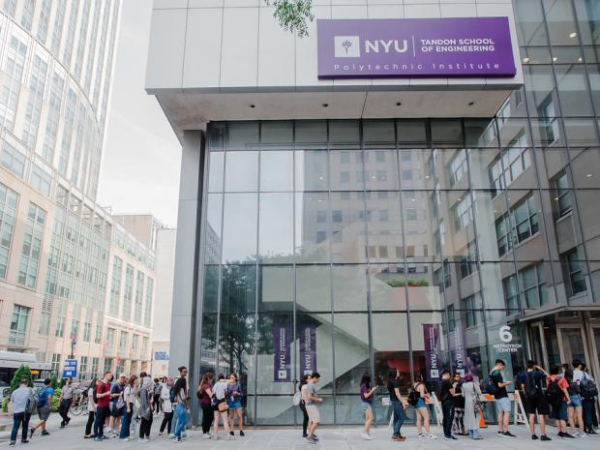
Source: NYU
NYU is the largest private university in the USA and houses 11 schools and colleges that offer hundreds of bachelor’s and graduate degree options to its students. Almost all of its constituent schools are located in the main campus located in Greenwich Village, Manhattan. Only the Tandon School of Engineering is located in downtown Brooklyn.
NYU’s campuses are scattered across several blocks in the city, primarily concentrated around Washington Square Park. The university does not have a separate enclosed campus but rather weaves through the buzzing tapestry of NYC. The 170+ buildings of the university spread between Manhattan and Brooklyn also includes, in addition to the academic, research, and residential premises, the Centre for Student Life, Office of Global Services, NYU Box Office, and the Wasserman Centre for Career Development.
Besides New York, the university also has degree-granting campuses in Abu Dhabi and Shanghai.
Boston University:

Source: BU
Like NYU, BU campus is also a part of the city and its skyline. The university does not have an enclosed campus but is rather open to students and public alike. The key distinction is that while NYU is spread over many blocks, most BU buildings are located along Commonwealth Avenue, with the Charles river running amidst. The river separates the academic and research buildings from the dorms and residence halls. Only the university’s medical campus is located in the South End neighbourhood.
This setup provides BU students easy access to everything the city has to offer, while also creating a close-knit atmosphere that is easy to navigate. Even though neither university has an enclosed campus, BU is the better choice for those looking for a smaller, more intimate campus ethos.
3. Student Population
NYU: In Fall 2023, the student body at NYU was around 61,950 out of which 29,760 were admitted in bachelor degree programs, 27,575 in graduate and professional degree courses and around 4,615 in noncredit programs. Like the city, the student population is also highly diverse, with a majority of international students, creating a multicultural learning atmosphere. Here is a break-up of the student population, based on 2023 enrollment.
- International: 24%
- White: 22%
- Asian/Pacific Islander: 19%
- Hispanic/Latino: 17%
- African American: 8%
- Other: 10%
Boston University: One of the largest universities in the Boston area, BU has over 17,400 undergraduate students and 18,400 graduate level students enrolled full-time. Out of the 35,000+ students enrolled, over 7,000 are international students from over 100 different countries across the globe. The women to men ratio among students has been around 58 – 59% to 42 – 41% over the last three years.
3. Housing
NYU: Living on campus is optional for NYU-NYC students, due to the sheer number of students enrolled in the university. The university has 20 residence halls located in Greenwich Village and Brooklyn. Over 97% of the rooms available in NYC dorms are shared spaces. The chances of getting private accommodation are very low.
Around 11,500 (around 20%) undergraduate and graduate students live on campus. First year students at the Tandon School of Engineering are assigned residence halls in Brooklyn only. On-campus housing costs anywhere between $11,000 and $27,000, depending on the nature of the room. The university also hosts an off-campus housing website for students researching options outside of the university.
Boston University: Unlike NYU, all freshmen at Boston University are required to live on campus. This helps freshmen acclimate better to life in college. Undergrads are guaranteed 4 years of housing should they choose to continue living in university-owned housing. Housing at BU typically costs around $19,000 a year, including meal plans.
BU has a lot more housing options when compared to NYC. They include dorms, single or sharing suites, brownstones, and high rises in tree-lined streets. All of them and the student village are situated near the Charles River, making access easy. However, since BU does not have an enclosed campus space, it is important to remember that these are stand-alone buildings in the Fenway-Kenmore neighbourhood.
4. Sports and Extracurriculars
NYU: Every year, around 450 NYU student-athletes compete on 23 NCAA Division III varsity sports teams. In addition, around 850 Violets face rival schools, as members of the 24 intercollegiate club teams. Intramural athletics range from soccer, basketball, and badminton to e-gaming, box cricket, and bowling. In addition, NYU also houses the Palladium Athletic Facility, 404 Fitness, and the Brooklyn Athletic Facility that offer classes for both recreation and fitness.
In addition to athletics, the university houses over 300 active student clubs and organizations that cater to a wide range of interests, from cheese to superheroes. These clubs function in addition to the school-based clubs that are specific to NYU schools or academic programs. All NYU students can access the entire list of clubs and organizations through NYU Engage. The university also has a vibrant culture of Greek life (fraternities and sororities) that encourages leadership and cultivates friendships.
The university also hosts a number of student-led media, ranging from traditional magazines, a radio streaming and broadcast called the WNYU and an independent student newspaper called the Washington Square News. Furthermore, NYU Steinhardt sponsors orchestras, choirs, and music ensembles, some of which are open to all students of NYU.
Boston University: The city’s affinity for sports and its traditions are also reflected in the university, with athletics and sports being a significant part of the student experience at BU. Student-athletes compete in 24 NCAA Division I varsity sports. Their hockey team is nationally renowned and has sent more players to the NHL than any other university. Rhett, the Boston Terrier, is the university mascot that brings together the student community with a sense of pride.
In addition to sports, BU has over 500 student organizations covering a wide range of interests. This allows students to explore other passions, develop leadership skills and build friendships. BU is also home to 12 fraternities and sororities which enable an active Greek life.
5. Internships
In both schools, the career cell is the ideal place to begin your research for internships in any location. With internships, you can gain more credits, boost your resume and experience the real-world demands of your profession. While listings are available throughout the year, it is expected that you plan your internships around your coursework.
NYU allows students to gain credit for select internships that are actively monitored. Students at BU can still receive academic credit for an internship whether it is paid or unpaid. BU also has an undergraduate research opportunities program that can also help you find a summer internship in line with your research project. 2 out of 3 undergraduates complete at least one internship experience while studying at BU.
6. Employability
NYU: One of the top 10 universities for graduate employability, 95% of NYU graduates are either employed or are pursuing higher education within 6 months of graduation. About 51% receive two or more job offers. The average starting salary for NYU graduates is $75,336.
Boston University: BU has a graduate employability rate of about 94% within 6 months of graduation. It is one of the top universities in the US, according to recruiters and CEOs. Over 600 employers participate in BU’s career fairs on campus. The average starting salary of BU graduates ranges between $50,000 and $85,000, depending on the field and the degree.
Summary

Deciding on NYU vs. Boston University is not a simple task. Both are highly reputed schools, highly selective, and have their signature academic programs. That said, here is a summary of the differences.
NYU is what you must look into if
- You are looking for the higher ranked of the two universities known for its global reputation and academic excellence.
- You want to join the illustrious alums of the Tisch School of Arts or the Stern School of Business
- You would enjoy living in the heart of NYC, in a bustling campus that is part of the cityscape.
- You prefer staying off-campus since housing at NYU can be competitive.
- You want to avail the merit and need-based scholarships that NYU has to offer.
- You want to be part of a top university without the pressure of having to excel in an Ivy.
Boston University is the way to go if
- You are not prioritising ranks but are rather focussed on specific interests and standout programs.
- You do not want to live in the bustle of NYC but choose Boston, a city that is renowned for its rich student life, vibrant history, and a strong network of colleges and universities.
- You want a campus that is relatively more centralised and easily navigable when compared to NYU.
- You want a fair shot at university housing, since housing at NYU is highly competitive.
- You want to be considered for merit scholarships, especially as an international student.
While these can be factored into your decision, the ultimate call rests on whether the course curriculum and the learning outcomes meet your career plans. The most significant part of your research is to compare courses, syllabi, electives, faculty and research facilities of your preferred degree program, speak to current students, and then decide depending on which school better suits your needs.
We understand that becoming an international student can be very thrilling, but the prep and paperwork of it all can get overwhelming. The easiest way to reduce your stress is to sign up with TC Global.
We simplify international education, learning, and mobility through connecting students, universities, and a global community on a single platform where there are over 1000+ education providers and over 80,000+ courses.
Our platform enables students to study anywhere in the world in just a few steps. From search and discovery and finding the right course fit for you, to applications, visas and departure – we see you through it all.
To move forward with us, download our app or visit tcglobal.com and sign in to create an account on our student platform and onboard with us in quick, easy steps.! ?
Then simply set up a visit Calendly.com/tcglobal to pick a Relationships Team closest to you and choose a slot to meet with a Relationship Member. Be it NYU vs Boston University or any such debates, our experts will be with you every step of the way to help you decide.
Let’s shape your future together.
Compare NYU to other Universities:
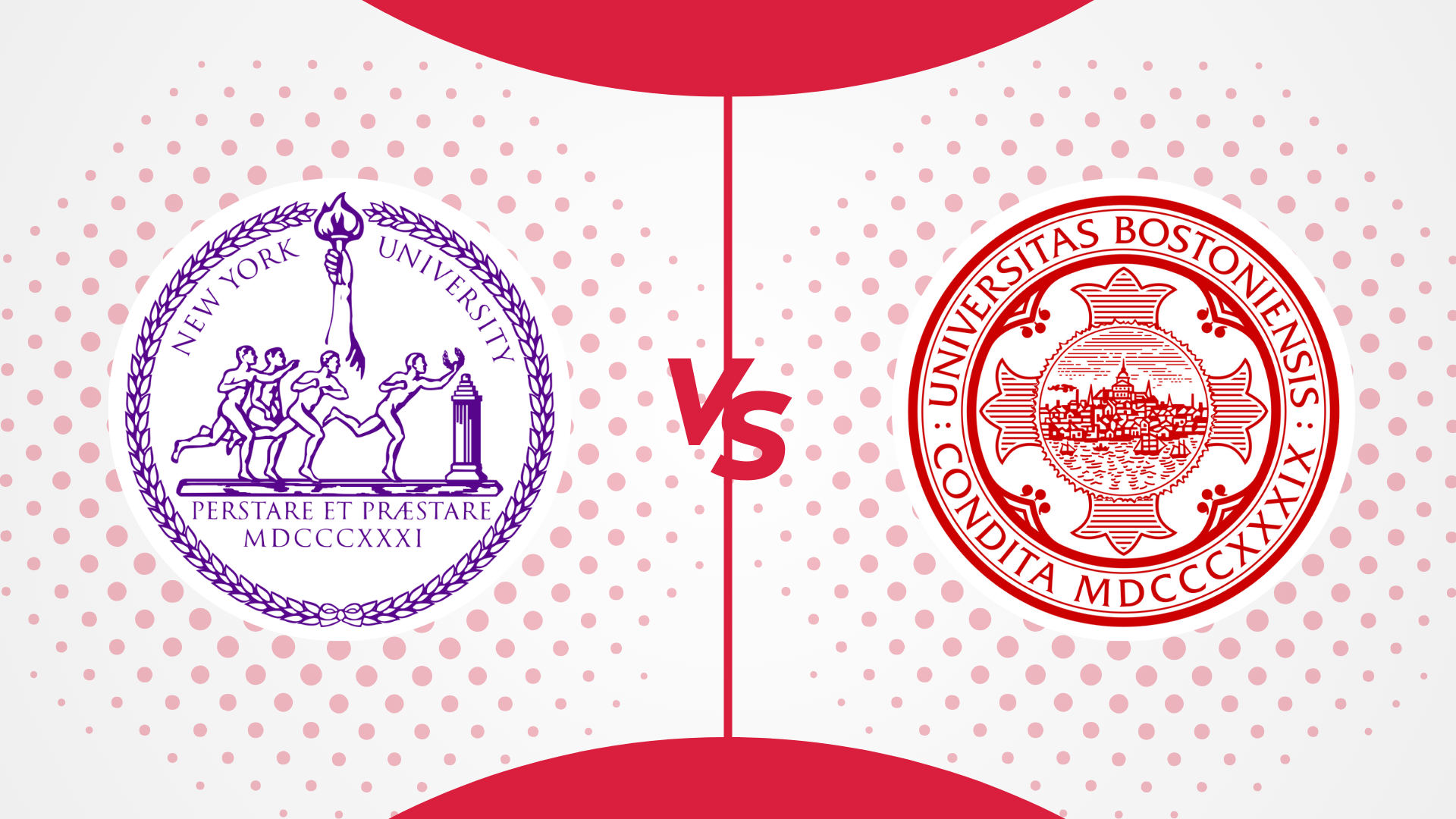
Compare more universities in USA
-

Purdue vs UIUC: How Do They Compare in 2025?
December 16, 2024 -
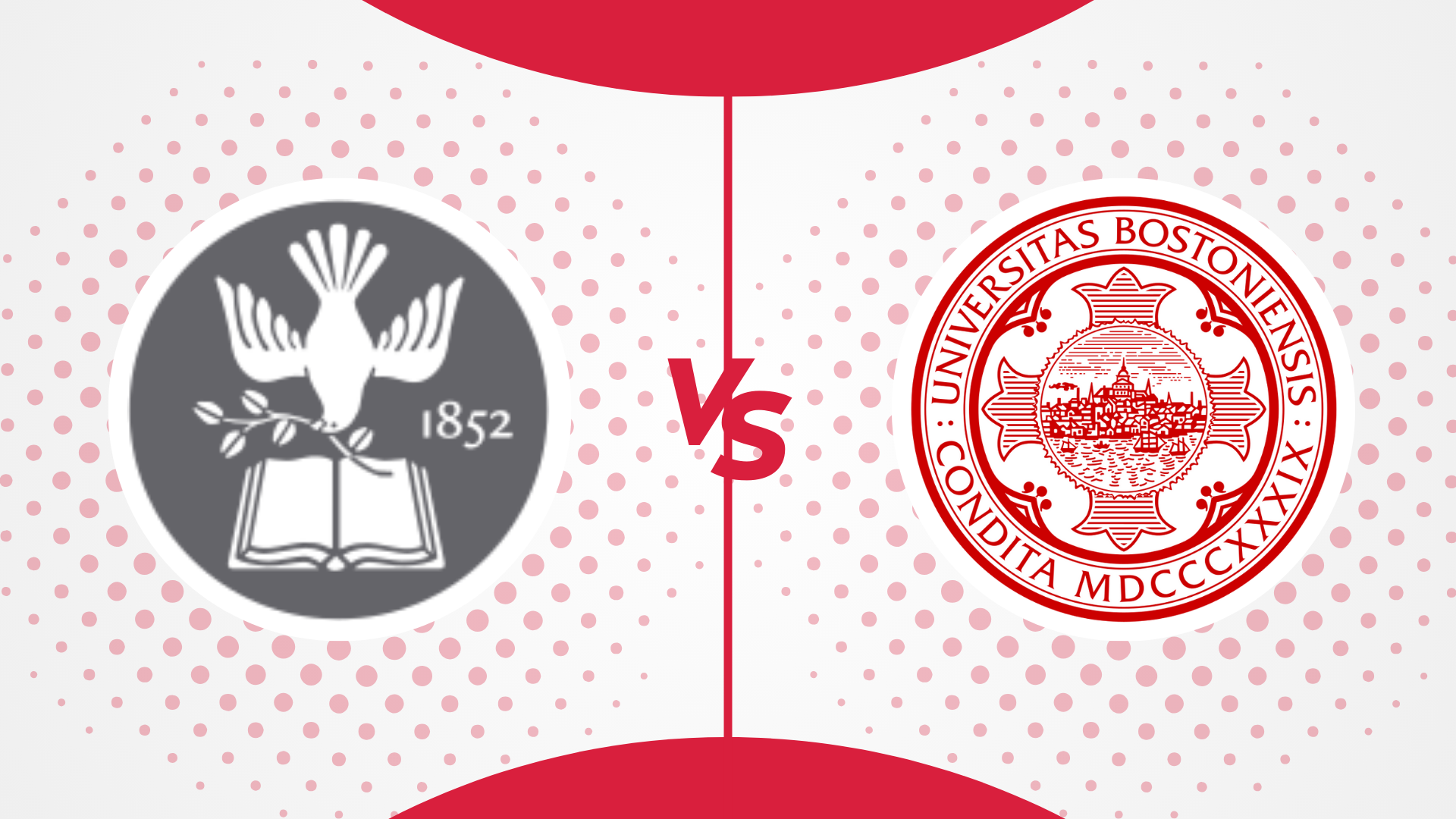
Tufts vs BU: How Do They Compare in 2025?
December 16, 2024 -

UIUC vs Georgia Tech: How Do They Compare in 2025?
December 3, 2024 -

Georgia Tech vs UT Austin: How Do They Compare? [2025]
September 24, 2024 -

UC Davis vs UC Irvine: How Do They Compare in 2024
September 10, 2024 -
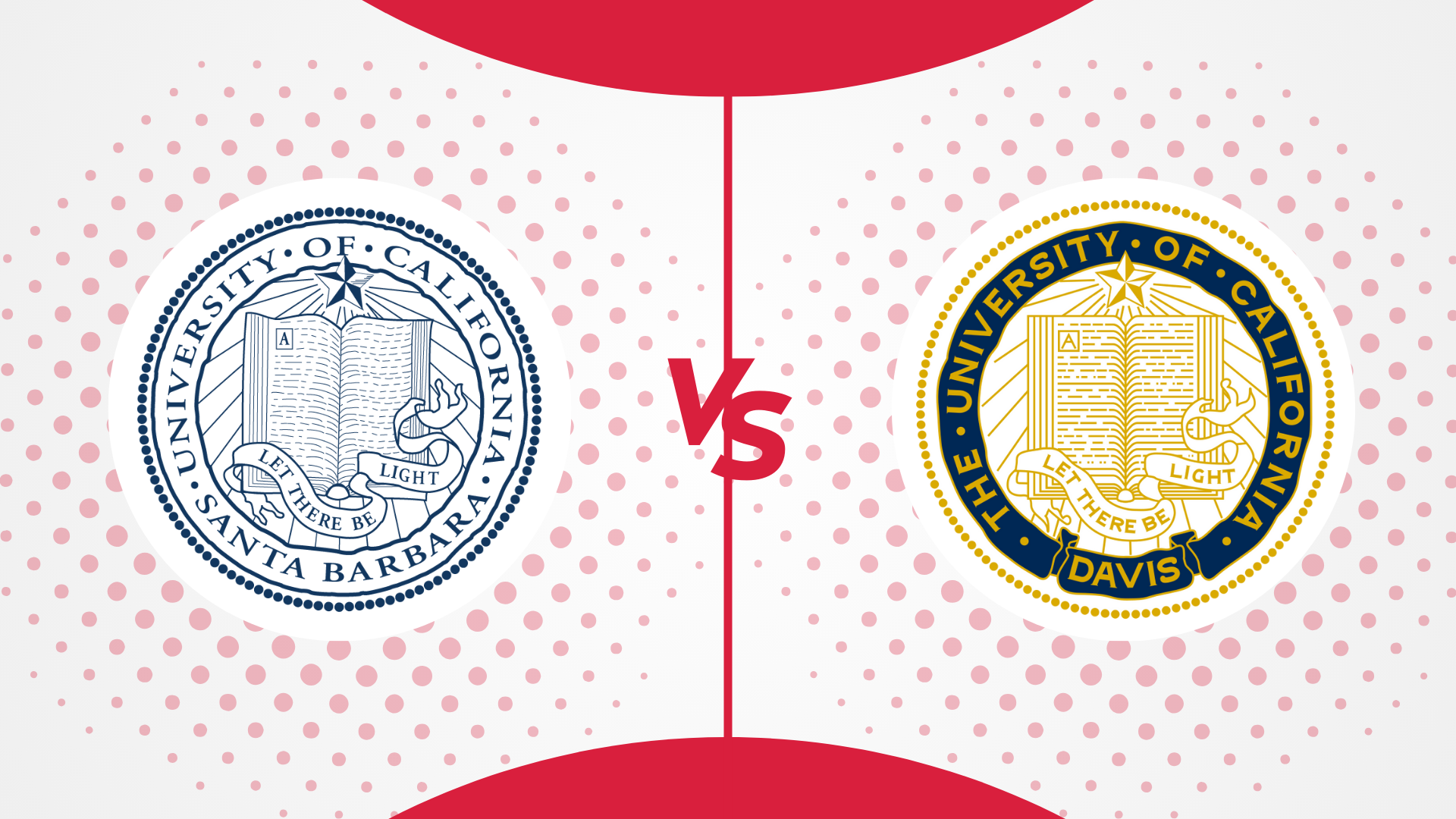
UC Santa Barbara vs UC Davis: How Do They Compare? [2024]
August 30, 2024 -

UC Davis vs Santa Clara University: How Do They Compare? [2024]
August 23, 2024 -

University of Chicago vs Northwestern University: How Do They Compare
August 20, 2024 -

Georgia Tech vs MIT: How Do They Compare? [2024]
August 7, 2024 -

Caltech vs MIT: How Do They Compare [2024]
August 2, 2024 -

MIT vs Harvard: How Do They Compare [2024]
July 27, 2024 -

Cornell vs Harvard: How Do They Compare? [2024]
July 27, 2024 -

Yale vs Harvard: How Do They Compare [2024]
July 22, 2024 -

Harvard vs Princeton: How Do They Compare [2024]
July 16, 2024 -
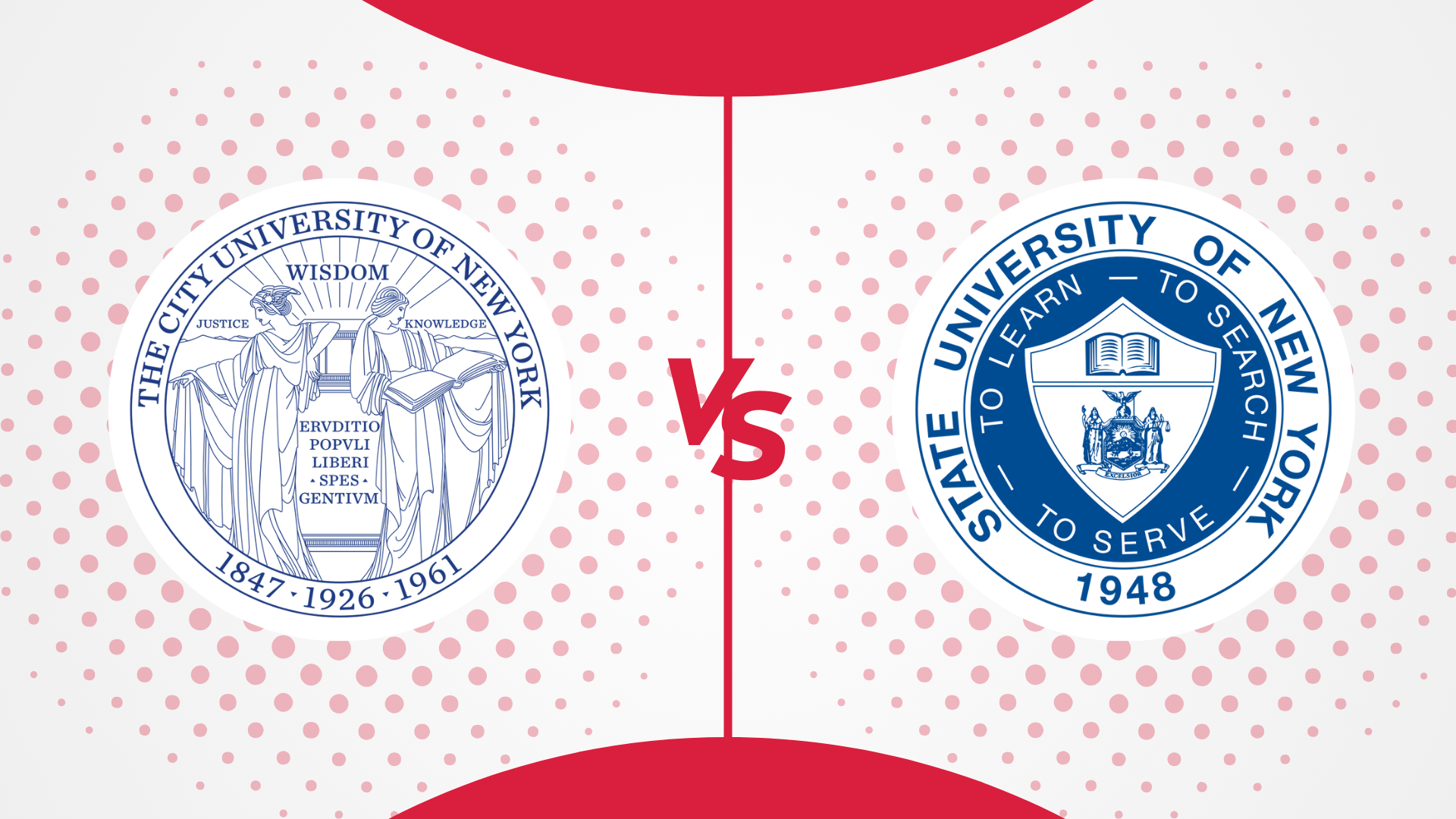
CUNY vs SUNY: Which One is For You in 2024
July 9, 2024 -

UCSD VS UCSB: Which One is Better For You in 2024
July 9, 2024 -

USD vs UCSD: Which one should you choose in 2024?
July 9, 2024 -
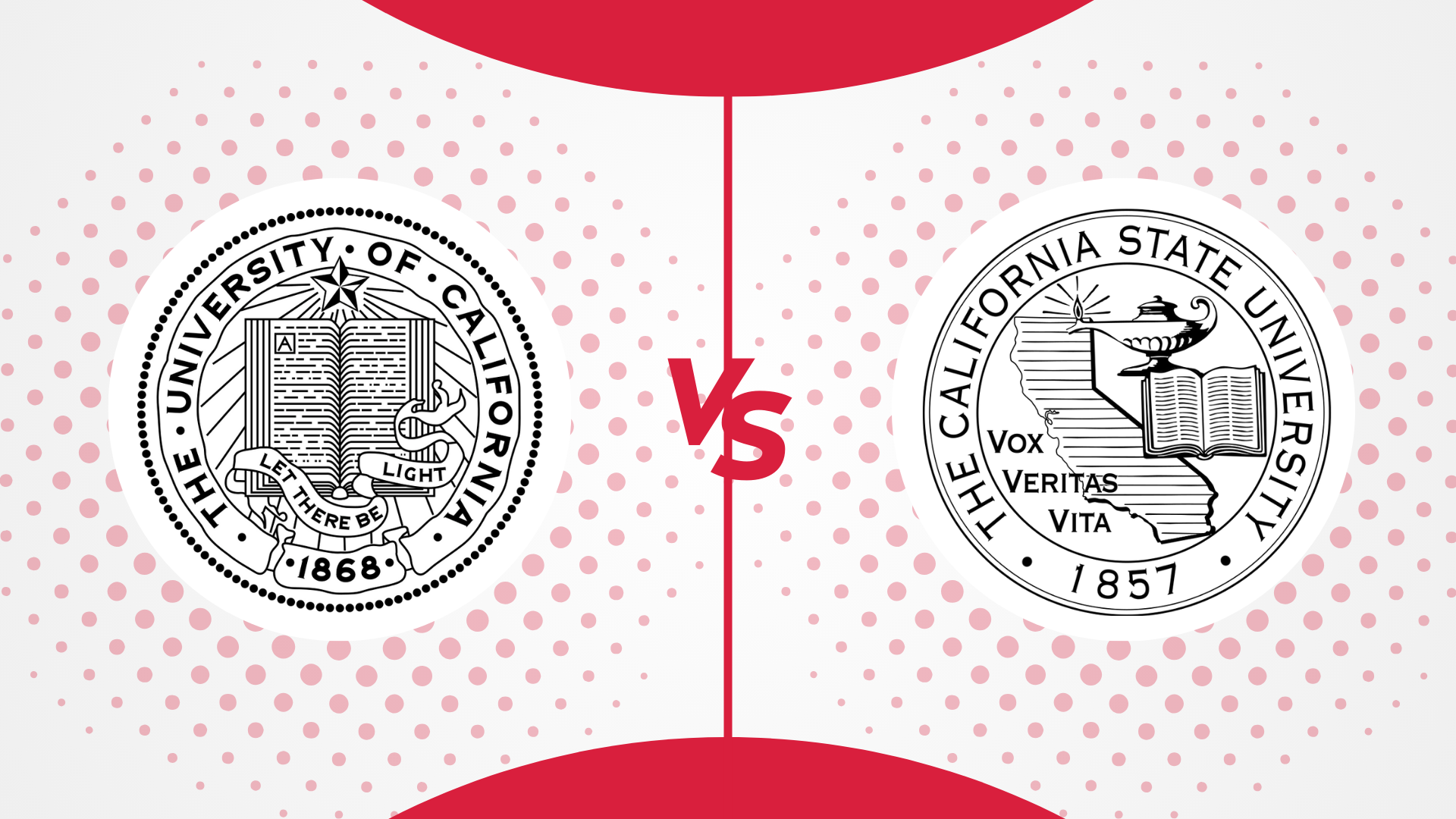
UC vs CSU: Which One is Better in 2024?
July 9, 2024 -
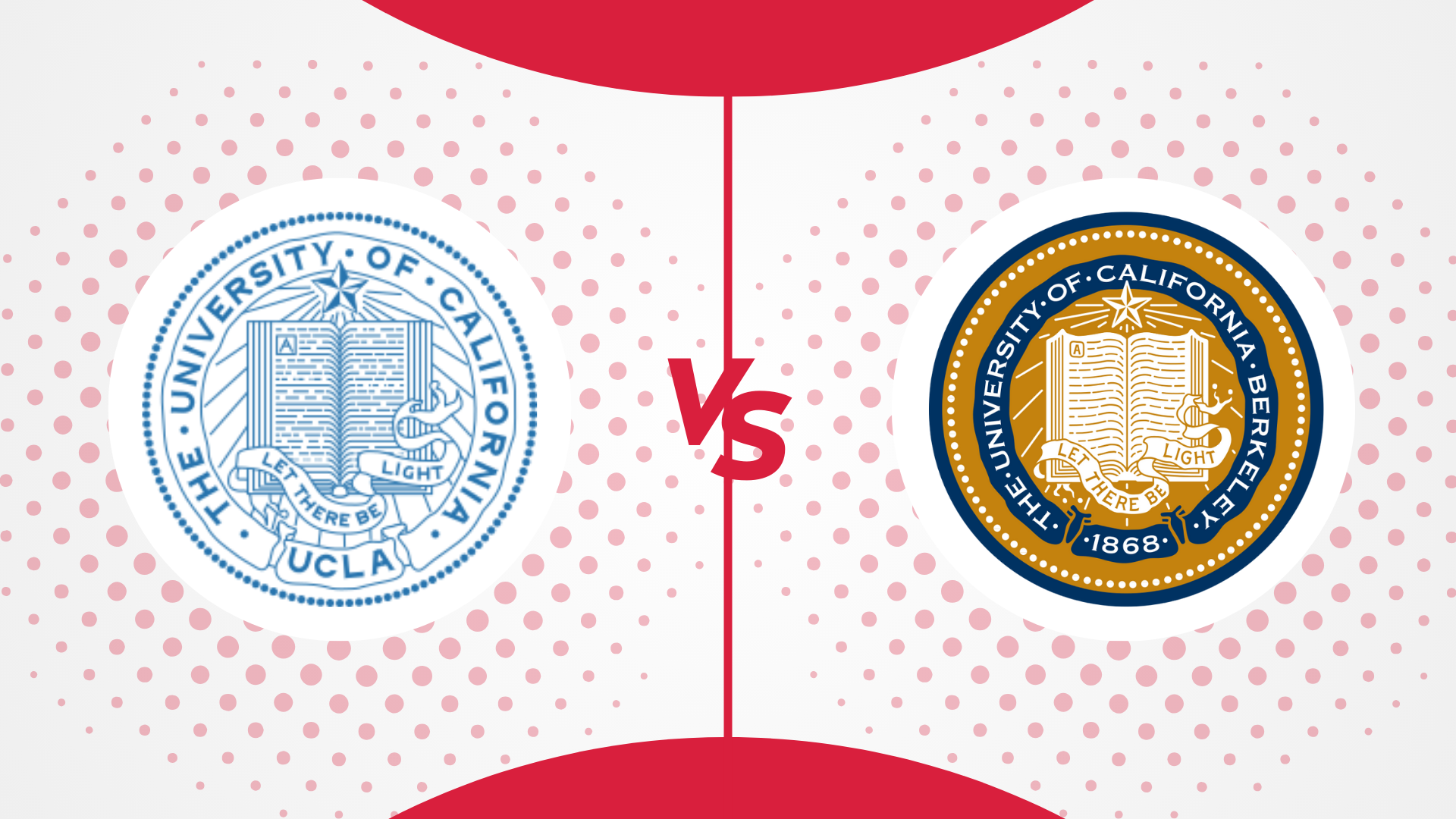
UCLA vs UC Berkeley: Which One is Best in 2024
July 9, 2024 -

University of Arizona vs Arizona State University: Which One is Better in 2024
July 9, 2024 -

Penn State vs UPenn: Which is Better for International Students in 2024
July 9, 2024 -

Northeastern vs Northwestern: Which One is Best in 2024
July 9, 2024 -

Northeastern University vs Purdue University – Which One is Better in 2024?
July 9, 2024 -

Boston College vs Boston University: Which One is the Best in 2024?
July 9, 2024 -

LSU vs UCLA: Which Is Better For You In 2024?
July 8, 2024 -

USC vs UCLA: Which One Is Better For You In 2024?
July 5, 2024 -
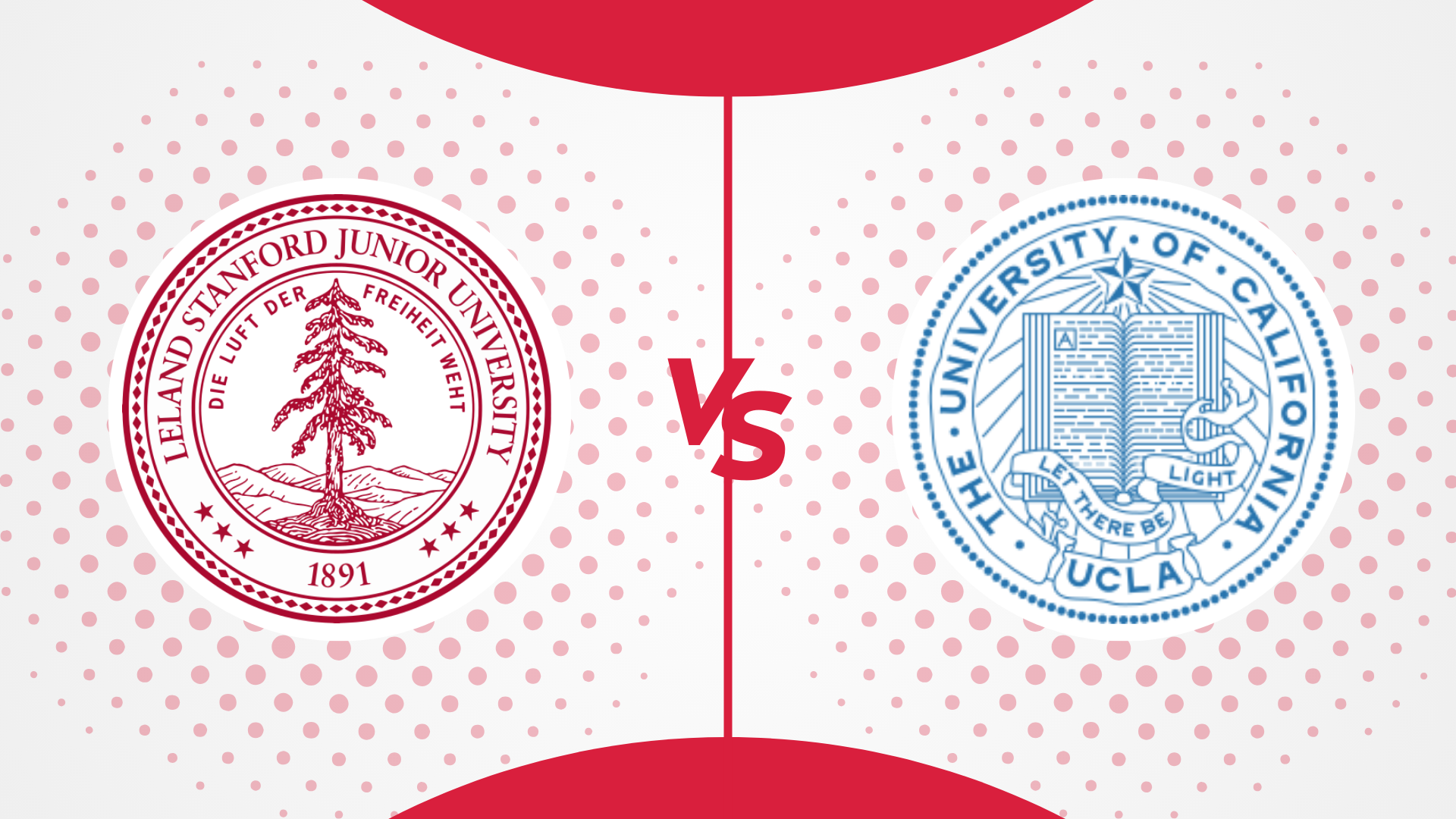
Stanford vs UCLA: Which One is Better For You in 2024
June 28, 2024 -

USC vs Stanford: Which One is Better For You in 2024
June 28, 2024 -
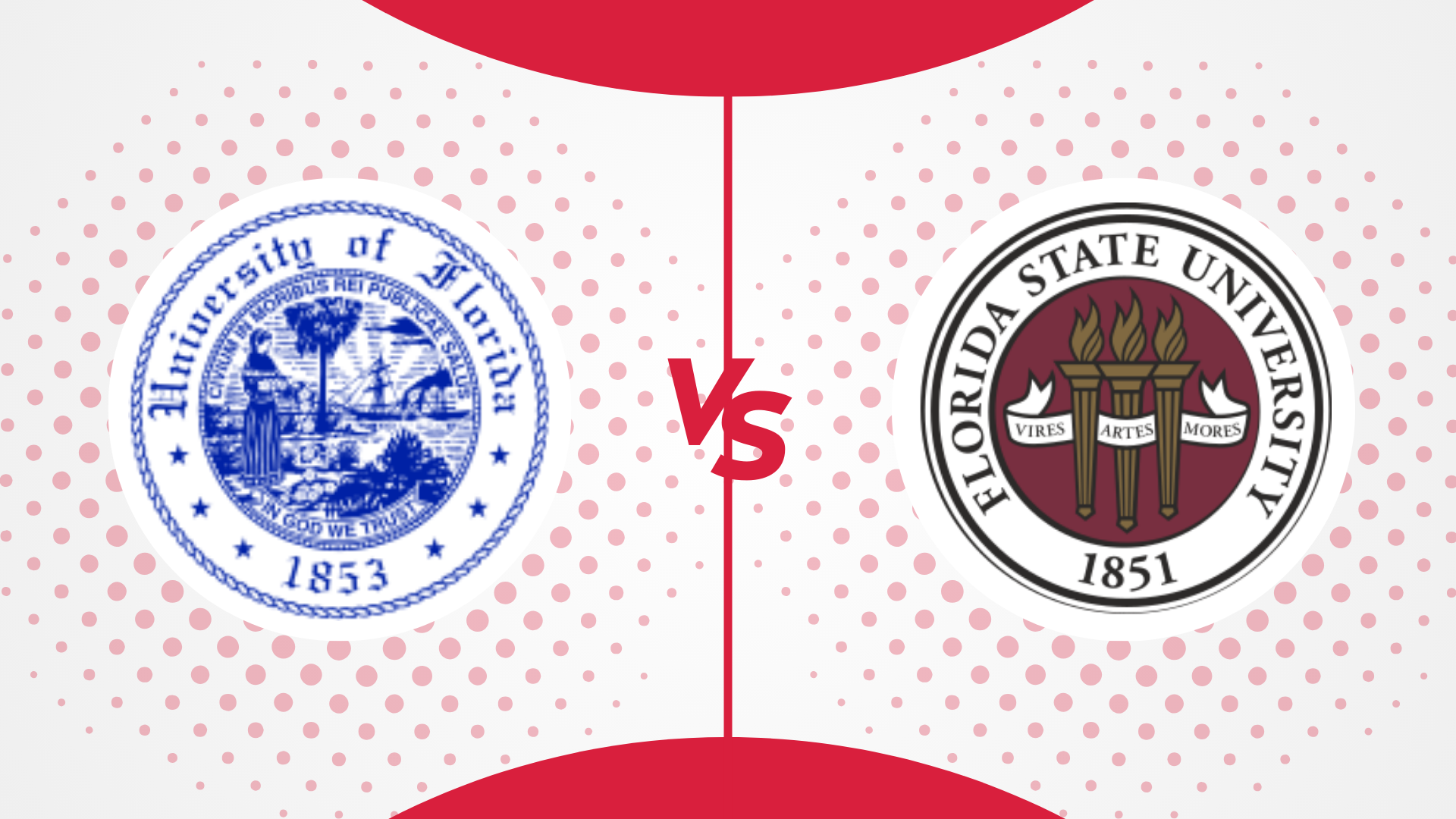
University of Florida vs Florida State University: Which One is Better For You in 2024
June 28, 2024 -

NYU vs Columbia: Which Is Better In 2024?
June 28, 2024 -

Princeton vs Columbia: Which Is Better In 2024?
June 28, 2024 -

NYU vs Cornell: Which One Is Better In 2024?
June 28, 2024 -

Boston University vs Northeastern: Which one is best in 2024
June 28, 2024 -

NYU vs UCLA: Which Is Better For You In 2024?
June 28, 2024
